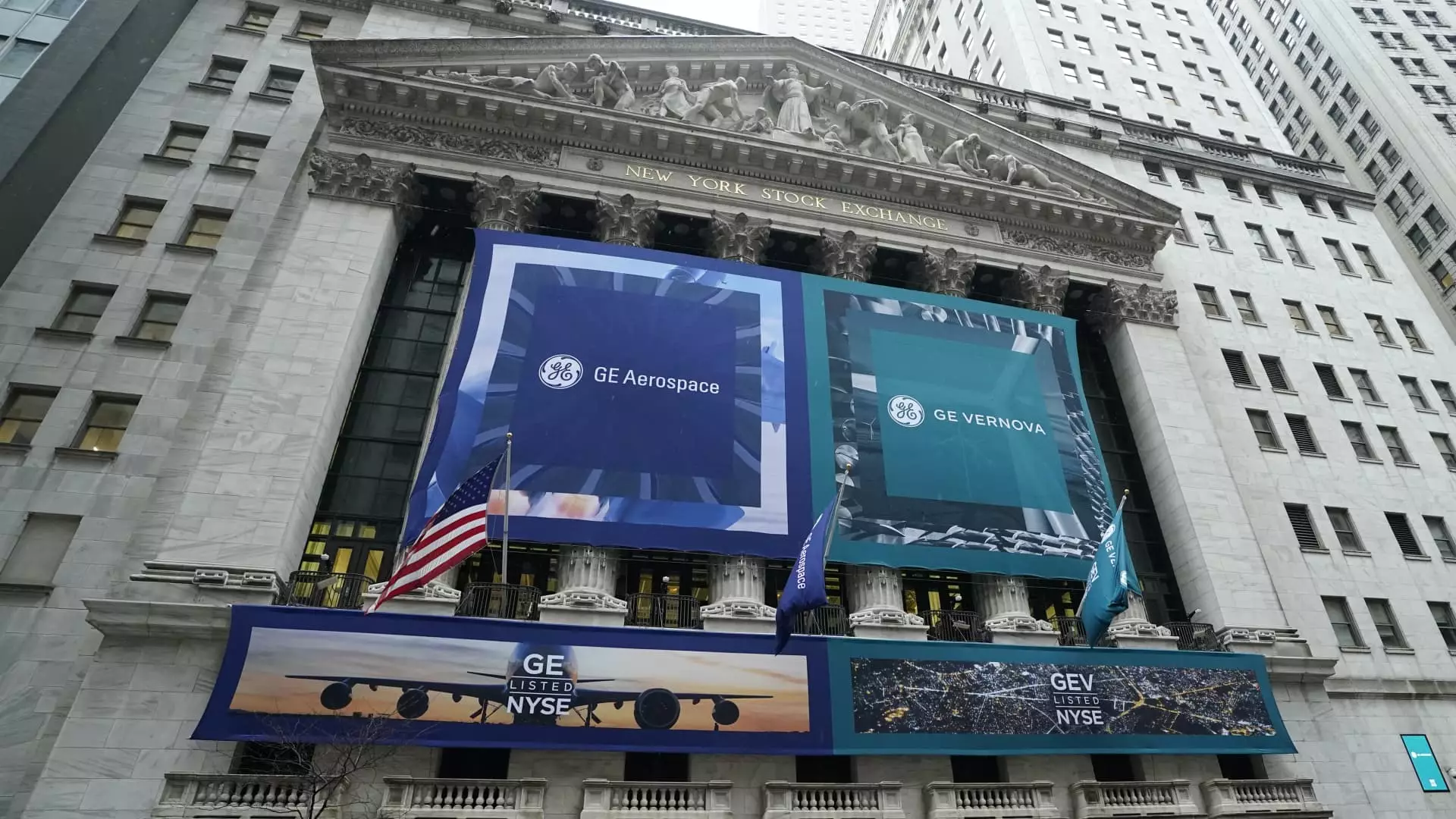The stock market is an ever-evolving landscape, where investor sentiment, economic data, and individual company performance interplay to drive valuations. Recent trends indicate a surge in investment activity as traders accumulate shares of well-established firms amid a market downturn. However, this can often lead to overvalued stocks, as indicated by technical analysis measures such as the Relative Strength Index (RSI). This article explores the implications of current market dynamics, dissecting the trends surrounding stocks like GE Vernova and United Airlines while also examining how some firms are facing downward pressure.
As October concluded with disappointing results for major U.S. stock indices, savvy investors capitalized on lower price points by buying shares of leading companies. Noteworthy among them are GE Vernova and United Airlines, both of which have seen significant price movements. It’s worth mentioning that while participation in the market often signals investor optimism, the reality can reveal areas ripe for correction. The market had just experienced a retreat—the S&P 500 recorded a 1% decrease, while both the Dow and Nasdaq saw similar declines. This backdrop raises critical questions about sustainability in the face of rising stock prices, particularly in an environment laden with macroeconomic challenges.
GE Vernova has witnessed a staggering increase in its stock value, appreciating 19% over the past month alone, which led to its RSI climbing to a level that historically suggests being overbought (76.9). This keen interest is partly driven by favorable earnings reports and increased guidance on revenue, instilling confidence among analysts and investors. However, there lies a paradox: with the current price nearing analysts’ price targets—indicating just under 2% room for growth—could a pullback be on the horizon? Experts cite resilience in the energy sector as a boon for GE Vernova, yet the prevailing sentiment often leads to unrealistic expectations that can backfire if reality fails to meet hype.
Furthermore, Deutsche Bank’s analyst reported a positive outlook post-earnings while emphasizing the company’s potential to capitalize on future power investments. Yet, what remains to be seen is whether this bullish sentiment can withstand the challenges posed by overbought market conditions.
Similarly, United Airlines’ stock has rocketed to an RSI of 78.7—which indicates overbought conditions. The airline’s staggering 95% year-to-date gain illustrates a significant rebound post-pandemic, as consumer demand snowballed. The airline’s robust earnings report, exceeding analysts’ expectations, fueled optimism amongst investors. Yet, one must ponder whether these prices can sustain momentum without triggering a wave of profit-taking among bullish investors. With the stock hitting a fresh 52-week high, signals might point toward a near-term correction, especially considering the historic volatility of the airline industry correlated with broader economic fluctuations.
Despite the optimistic growth narrative, analysts are predicting only a modest 16% upside, which raises concerns of a bubble. Strong sentiment often finds itself challenged by unforeseen external factors, especially in an industry highly influenced by economic cycles.
In stark contrast to the previously mentioned firms, companies like Regeneron Pharmaceuticals and Estée Lauder paint a different picture. With an RSI of just 10.6, Regeneron is deeply oversold—reflecting concerns over sales missed across quarters. Even as the company reported a strong earnings performance, the market remains jittery about competitive pressures and unmet expectations, showcasing the volatility that can ensue when perceived glory falls flat.
Estée Lauder similarly grapples with its sales plummeting, with a steep 31% decline observed over the last month. Analysts have revised earnings estimates downward, indicating a loss of faith in consumer demand, especially given the challenges faced in international markets.
At this juncture, these oversold stocks might actually represent an intriguing opportunity, as they possess upside potential but require careful navigation through a tough market environment shaped by skeptical consumer sentiments and shifting analyst projections.
The stock market is filled with fluctuations, reflecting a constant battle between bullish optimism and bearish caution. While many investors remain eager to capitalize on high-flying stocks like GE Vernova and United Airlines, it’s essential to recognize the accompanying risks of overvaluation. Conversely, stocks like Regeneron and Estée Lauder exemplify the uncertain dynamics that exist within the market, where lucrative opportunities often come wrapped in complexity. As November unfolds, investors must engage with a discerning perspective, ever mindful that today’s winners may become tomorrow’s cautionary tales. Being alert to shifts in sentiment and market conditions will be paramount for informed investment decisions in the weeks and months ahead.


Leave a Reply